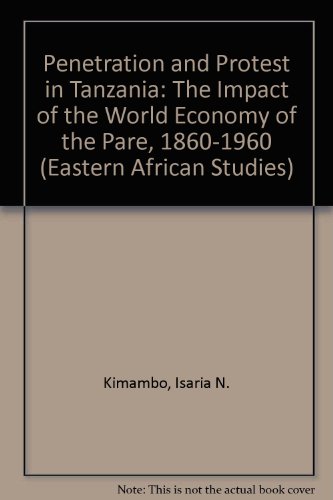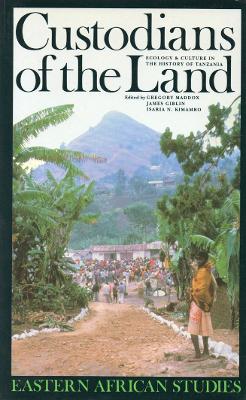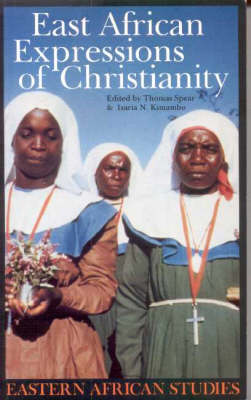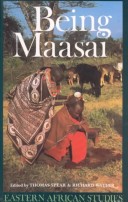Eastern African Studies
4 total works
The originality of this study of rural transformation stems from the way in which Professor Kimambo has used the oral tradition to reveal the history of the impact of the world economy in northeastern Tanzania. First under the pressures of commodity trade, and later under German and British imperialism, the peasant producers of this region were forced into participation in capitalist production.
These partial changes destroyed the Pare's balanced subsistence structure. But throughout the colonial period they were frustrated in their efforts to transform themselves fully into capitalist producers. These struggles finally led to open revolt in 1947 and it was three years before the protest ended. Between 1947 and 1960 the colonial government tried to reverse the effects of the revolt without providing the kind of transformation desired by the peasants.
This study illustrates vividly the difference between the intentions of capital and those of the colonized peasantry. The intentions of the two sides seemed to be incompatible. While imperialism would allow for the limited participation that would maximize profits for metropolitan capital, the peasants were struggling for freedom to transform themselves into capitalist producers.
These partial changes destroyed the Pare's balanced subsistence structure. But throughout the colonial period they were frustrated in their efforts to transform themselves fully into capitalist producers. These struggles finally led to open revolt in 1947 and it was three years before the protest ended. Between 1947 and 1960 the colonial government tried to reverse the effects of the revolt without providing the kind of transformation desired by the peasants.
This study illustrates vividly the difference between the intentions of capital and those of the colonized peasantry. The intentions of the two sides seemed to be incompatible. While imperialism would allow for the limited participation that would maximize profits for metropolitan capital, the peasants were struggling for freedom to transform themselves into capitalist producers.
Custodians of the Land
by Gregory Maddox, James Giblin, and Isaria N. Kimambo
Published 16 November 1995
In his conclusion, Isaria Kimambo reflects on the efforts of successive historians to strike a balance between external causes of change and local initiative in their interpretations of Tanzanian history. He argues that nationalist and Marxist historians of Tanzanian history, understandably preoccupied through the first quarter-century of the country's post-colonial history with the impact of imperialism and capitalism on East Africa, tended to overlook the initiatives taken by rural societies to transform themselves. Yet, he suggests, there is good reason for historians to think about the causes of change and innovation in the rural communities of Tanzania, because farming and pastoral people have constantly changed as they adjusted to shifting environmental conditions.
North America: Ohio U Press; Tanzania: Mkuki na Nyota
North America: Ohio U Press; Tanzania: Mkuki na Nyota
East African Expressions of Christianity
by Thomas Spear and Isaria N. Kimambo
Published 21 January 1999
This history examines, through case studies, the ways in which African chatechists, evangelists and translators have interpreted Christianity for themselves and conveyed it to others. It analyzes African prophetic and healing movements which drew on African and Christian traditions.
Many of the people who identify themselves as Maasai, or who speak the Maa language, are not pastoralist at all, but framers and hunters. Over time many people have 'become' something else, adn what it means to be Maasai has changed radically over the past several centuries and is still changing today.
This collection by historians, archaeologists, anthropologists and linguists examines how Maasai identity has been created, evoked, contested and transformed.
North America: Ohio U Press; Tanzania: Mkuki na Nyota; Kenya: EAEP
This collection by historians, archaeologists, anthropologists and linguists examines how Maasai identity has been created, evoked, contested and transformed.
North America: Ohio U Press; Tanzania: Mkuki na Nyota; Kenya: EAEP



